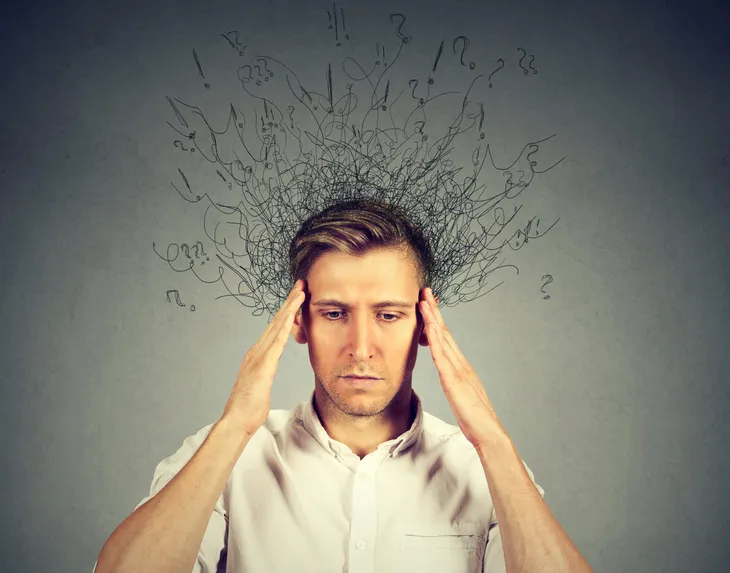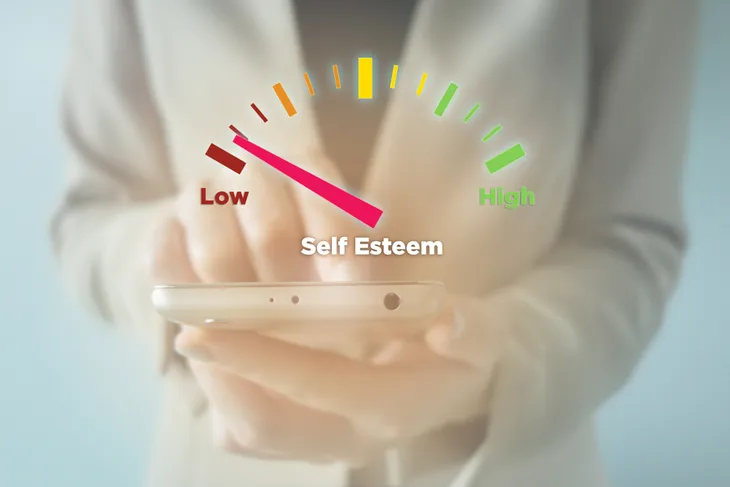Attention Deficit Hyperactivity Disorder (ADHD) is commonly associated with children, but it can progress into adulthood and present its own unique challenges at a later age. While the adult version shares symptoms such as lack of attention and impulsiveness with its counterpart in children, it can impact patients in other ways.
Adult ADHD may have started at a younger age, but in some cases, it’s not diagnosed until later in life and the symptoms may not be as pronounced as they are in children, explains the Mayo Clinic. Pay attention to these 16 signs of adult ADHD…
1. Lack of Impulse Control
The Mayo Clinic says adults with ADHD may not even know they have it, but the impulsiveness can manifest in different ways. For example, “Inability to control impulses can range from impatience waiting in line or driving in traffic to mood swings and outbursts of anger,” notes the source.
These symptoms are in line with other traits on the clinic’s adult ADHD list, including frequent mood swings, hot temper, low frustration tolerance and trouble coping with stress. Other sources note impulsiveness can mean saying whatever’s on your mind without considering the consequences, such as buying things you don’t need, suddenly quitting a job, or engaging in unprotected intimate encounters.
2. Lack of Focus
This falls firmly into the “attention deficit” portion of ADHD, but lack of focus means more than having trouble paying attention when it comes to adult patients, explains Healthline.com.
The focus problem can affect personal and professional relationships. “It means being easily distracted, finding it hard to listen to others in a conversation, overlooking details, and not completing tasks or projects,” notes the source.
3. Hyperfocus
The same source explains that on the flip side, adults with ADHD may develop something called hyperfocus, which basically means they become so fixated on one thing that they block out the rest of the world.
“This kind of focus makes it easier to lose track of time and ignore those around you. This can lead to relationship misunderstandings,” explains Healthline.
4. Poor Listening Skills
Busy professionals have a lot of information to take in and meetings can be crucial for this purpose. However, adults displaying ADHD can “zone out” during important meetings, explains WebMD.
The patient may also seem to listen but not really take in the information. For example, an adult with ADHD may forget to perform a task (such as picking up groceries on the way home from work) even if someone just called to remind them. Patients may also forget to keep appointments.
5. Procrastination
Health.com explains that adults with ADHD will often leave tasks right until the last minute to complete, living “deadline to deadline.” The source says this is likely because “when people with ADHD are under the gun and anxious, that’s when they can focus.”
However, leaving things until the last minute can create a stressful way of life, which can lead to constant anxiety. So, completing tasks on time based on being anxious can be a bit of a catch-22. This habit of leaving things until the last minute goes hand-in-hand with another adult ADHD symptom having trouble starting a task that requires attention.
6. You Misplace Common Items
If you’re progressing in age and starting to misplace your car keys, it could be a sign of normal age-related memory blips (or something more serious, such as the early stages of dementia). However, it can also be a sign of ADHD, adds Health.com.
The source says those with ADHD commonly misplaced items, because they have an “underpowered state of consciousness,” and sometimes when you’re not paying attention when setting down your keys or wallet, it means your brain doesn’t register that it actually happened.
7. Restlessness
Children with ADHD can almost literally bounce off walls, but this level of hyperactivity may not be as pronounced in an adult patient, notes WebMD. “Adults with ADHD are more likely to be restless or find they can’t relax,” explains the source.
You will likely appear as “edgy or tense” to others if you’re an adult with ADHD. It’s no surprise then that other sources point out many adults with ADHD have other mental health conditions, including anxiety.
8. Disorganization
Do you have stacks of paper on your desk, or don’t really know where any important documents may be if you needed them in a hurry? You may have adult ADHD. “Needed items at work and home get buried in piles of clutter. Bills don’t get paid. Projects go unfinished,” explains the ADHD Center.
The source explains that “organization strategies” are needed to tackle tasks, but they don’t have to be extreme. “Transforming an environment of chaos into ordinary messiness can and should be considered a job well done,” it says. It helps to break larger projects into smaller pieces and complete them one at a time.
9. You’re a Thrill Seeker
People who suffer from ADHD are more likely to engage in risky activities that get their adrenaline pumping, such as skydiving, bungee jumping, fast driving, gambling, or even extramarital affairs. This symptom can cause a person to put themselves in potentially dangerous situations, so in order to stop that from happening, Health.com advises channeling that energy into more positive activities that are still adventurous but won’t put your life, family, or relationships in jeopardy.
10. Relationship Woes
Just because you had one relationship that didn’t work out doesn’t mean you suffer from ADHD, but if there is a pattern of (or someone else has noticed) turmoil in every close relationship or friendship, in addition to some of the other symptoms on this list, it might be due to ADHD.
It’s important to note that there’s a key factor in this that can help determine whether it’s due to ADHD. People who suffer from this condition tend to experience problems in their relationship once the novelty, or as what some like to refer to as the “honeymoon phase,” wears off. “Oftentimes adults with ADHD really have a hard time with that transition,” says Colette de Marneffe, PhD, a clinical psychologist in Silver Spring, MD, to Health.com. “When the relationship becomes more stable and predictable, conflicts tend to emerge.”
Other factors of ADHD can play into relationship problems, such as an inability to focus, being easily distracted, lack of impulse control, bad temper, and poor listening skills. Not surprisingly, these can all make being in a successful relationship more difficult, because others might view it as being self-centered, writes the source after talking to Martin W. Wetzel, MD, an assistant professor of Psychiatry at the University of Nebraska Medical Center in Omaha.
11. Emotional Issues
This one kind of ties in with relationship woes, because it has to do with a person’s emotions. Someone with ADHD will experience a constant flux in their emotions. One minute they are up, the next they are down. It’s also closely associated with some of the other symptoms on this list, such as being easily distracted or unable to focus. “You can easily become bored and go looking for excitement on a whim. Small frustrations can seem intolerable or bring on depression and mood swings,” explains Healthline. These kinds of unstable emotions can cause an array of problems both in your personal and professional life.
In relation to this, Health.com also explains that adults with ADHD might suffer from a short fuse, or quick temper. They will have trouble controlling their emotions in heated situations and find themselves easily frustrated and fuming mad one second, then completely over it the next. This symptom is tricky and is easily misconstrued as bipolar disorder. In fact, Health.com notes that often times people with ADHD are misdiagnosed with bipolar disorder.
 Shutterstock/pathdoc
Shutterstock/pathdoc12. Trouble at Work
We’ve already listed several symptoms that could easily contribute to problems in your work life. While we’re all a little unhappy at our jobs sometimes, or even a little bored from time to time, we get through it. Someone with ADHD will have a lot of trouble making themselves focus on the mundane tasks of their job. Not surprisingly, this can cause trouble for them in their professional lives. Other symptoms of ADHD that can interfere with your work life is inability to focus, procrastination, emotional instability, and disorganization.
Colette de Marneffe, PhD, told Health.com that people with ADHD should avoid jobs that have a lot of repetition and instead choose work that is engaging and fulfilling to them.
13. You’re a Smoker
Even though there is plenty of research out there on why smoking is bad, there are still many people who cannot bring themselves to quit. Also, there are new smokers emerging every day! People with ADHD are among the smokers that do exist out there. According to Health.com, 40-percent of people with ADHD smoke. This number is really high, especially when compared against the percentage of the general population that smoke, which is only 26-percent.
“Nicotine is very effective for a lot of ADHD symptoms, and it’s not uncommon for me to see someone for the first time after they quit smoking,” says Martin W. Wetzel, MD, to Health.com. It can be really difficult for anyone to quit smoking, as it brings out a slew of other symptoms. But it’s particularly hard for someone with ADHD, because their problems with focus and concentration might become worse. People with ADHD are also more likely than the average person to use alcohol and other drugs at a young age.
Healthline also points out that adults with ADHD are more likely to suffer from substance abuse problems with cigarettes, drugs, and alcohol. While it’s unclear what the correlation is, it’s most likely due to the fact that they use these substances to self-medicate, as they might find these substances help them sleep, relieve anxiety, or hope to improve focus.
14. Forgetfulness
This symptom might be more difficult to spot, because we’re all a little forgetful sometimes (some more than others). However, a person with ADHD will be constantly forgetting things. It will happen to the point that it might seem like they don’t care or that they weren’t even listening in the first place. They will be constantly forgetting things on a daily basis. These things can range from important events and dates such as a birthday, to things they need to hold onto, or tasks that need to be finished.
Luckily for them, sometimes their forgetfulness will be unimportant and might slide by as a comical error or running joke that just keeps going, but other times, it can be more serious. It can be harmful to their job, their relationships, or even their health. Healthline points out that it’s sometimes misconstrued by outsiders as lack of intelligence or carelessness.
15. You Have a Family History of ADHD
If you suspect someone has ADHD, one of the best ways to tell is by looking at their family history. According to the Attention Deficit Disorder Association, there is a genetic component to ADHD, which means if one family member has it, then there is a 25 to 35-percent chance that another family member does too.
When it comes to diagnosing children, an adult might recognize some of the signs they see in their own child as similar to the ones they showcased at the same age. For an adult, if the condition isn’t caught early enough but is still suspected, they can look toward their parents or siblings in order to solidify a determination.
16. Poor Self-Image
On top of all their other struggles that affect their personal and professional lives, adults with ADHD are oftentimes their worst critic. They commonly suffer from poor self-image and are hypercritical of themselves. “This is due in part to their inability to concentrate, as well as other symptoms that may cause problems in school, work, or relationships,” writes Healthline.
We previously talked about how ADHD can lead to relationship issues and problems at work, and even though these are results of symptoms they cannot control due to their condition, they will associate them as personal failures or underachievement which leads to their poor self-image.


















